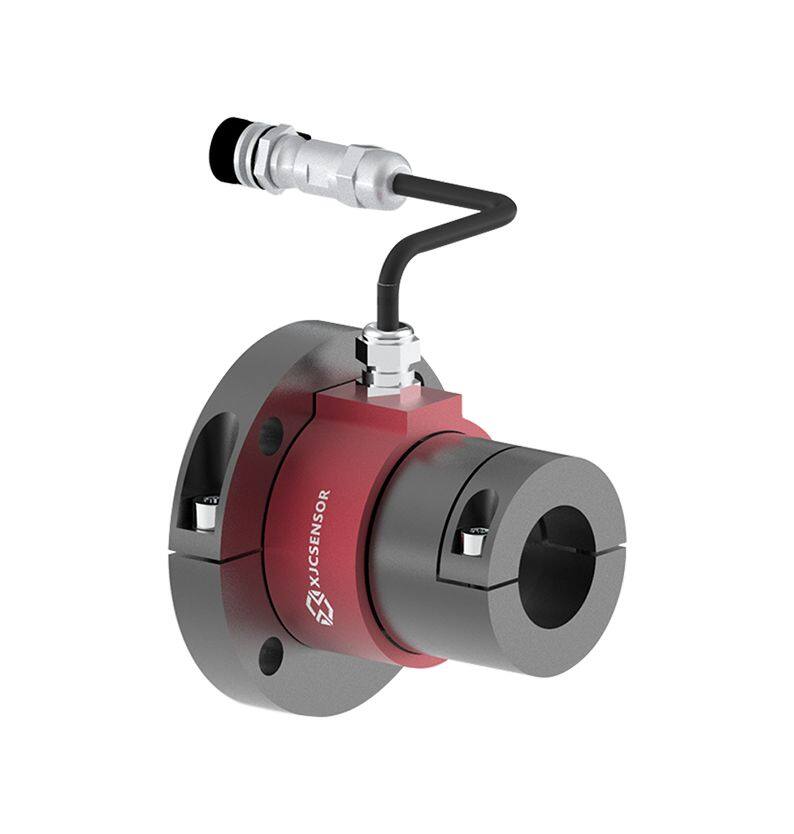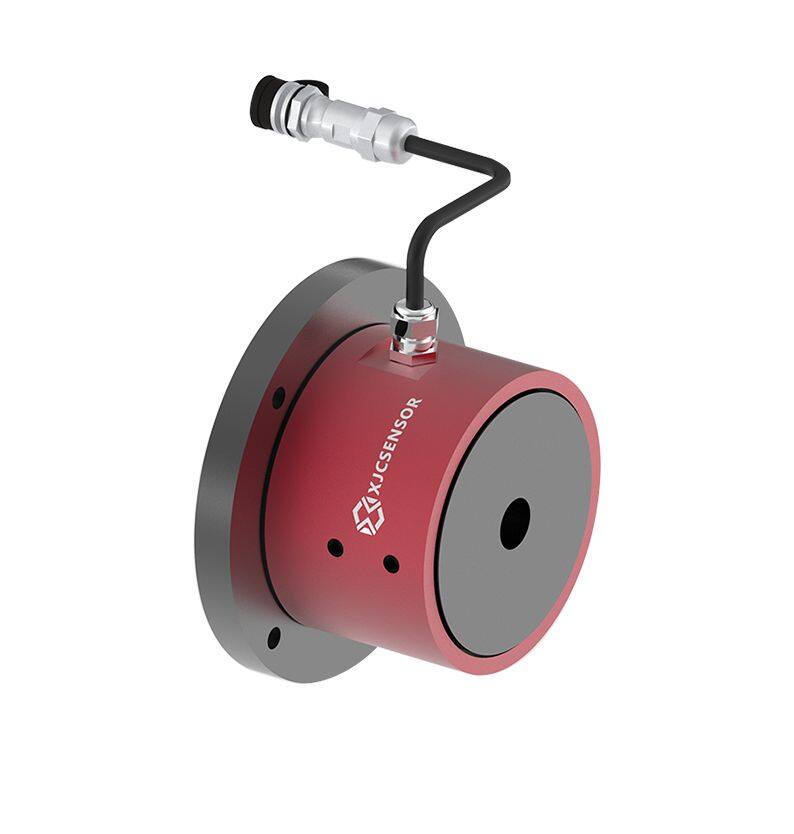Email cannot be empty
Password cannot be empty
Email format error
Email cannot be empty
Email already exists
6-20 characters(letters plus numbers only)
The password is inconsistent
Email format error
Email cannot be empty
Email does not exist
6-20 characters(letters plus numbers only)
The password is inconsistent


Through-Hole Tension Sensor in Bulk: Everything You Need to Know
The industrial and manufacturing landscape constantly demands precise and reliable equipment to ensure quality and efficiency. One such indispensable device is the through-hole tension sensor. Whether you're sourcing through-hole tension sensors in bulk or looking for the perfect device for your specific application, understanding how they work, where they are used, and what to consider when purchasing them in bulk is essential.
In this comprehensive guide, we will walk you through everything you need to know about through-hole tension sensors, including their types, applications, and key factors to keep in mind when buying in bulk.
Introduction to Through-Hole Tension Sensors
Through-hole tension sensors are specialized devices used to measure tensile force. They operate by capturing the force exerted on a material as it passes through the hole in the sensor. These sensors are crucial for ensuring that the force being applied stays within a designated range, which is particularly important in high-precision industrial processes.
Whether you are sourcing these devices for machinery, construction, or other industrial applications, purchasing through-hole tension sensors in bulk can offer significant cost savings and operational advantages. Understanding how these sensors function and their specific benefits will help you make more informed purchasing decisions.
How Through-Hole Tension Sensors Work
The working principle of a through-hole tension sensor revolves around the strain gauge technology. As the material, typically a cable or wire, passes through the sensor’s hole, any applied tension alters the electrical resistance in the sensor. This change in resistance is measured and translated into a readable force output, often displayed on a screen or transmitted to a control system.
The precision of these sensors makes them highly desirable in industries requiring exact tension measurements, such as in wire tension control systems, cable manufacturing, or even high-stress applications like structural engineering.
Types of Through-Hole Tension Sensors
When purchasing through-hole tension sensors in bulk, it's crucial to be aware of the different types available. While all through-hole tension sensors serve the basic purpose of measuring tensile force, they come in various configurations depending on their application. Below are some common types:
Analog Through-Hole Tension Sensors
These provide continuous analog signals and are often preferred for simpler setups.
Digital Through-Hole Tension Sensors
These sensors offer digital output, which can be directly integrated with modern control systems for more sophisticated tension monitoring.
High-Capacity Through-Hole Tension Sensors
Designed for applications where extremely high tension needs to be measured, such as in construction or heavy industry.
Low-Capacity Through-Hole Tension Sensors
Suitable for more delicate applications where precision is key, such as in electronics or small-scale manufacturing.
Understanding the type of sensor you need is key before ordering in bulk, as it will ensure that the sensors you select are tailored to your specific operational requirements.
Benefits of Through-Hole Tension Sensors in Bulk Purchases
Buying through-hole tension sensors in bulk offers several advantages beyond simple cost savings. Here are some of the primary benefits:
Reduced Costs
When you purchase tension sensors in bulk, you often receive a discount per unit, helping to reduce your overall costs. This is particularly beneficial for businesses that require a large number of sensors for multiple projects.
Consistency in Quality
Bulk purchases often come from the same production batch, ensuring uniformity in sensor quality and performance.
Simplified Logistics
Buying in bulk simplifies logistics and supply chain management. You won't need to reorder frequently, saving time and resources.
Customization Options
Many suppliers offer customization options, such as branding or specific calibrations, when you purchase in bulk.
Applications of Through-Hole Tension Sensors
Through-hole tension sensors are used across various industries where precise force measurement is crucial. Below are some of the most common applications:
Industrial Automation
In industrial settings, through-hole tension sensors ensure that the tension in wires or materials is maintained at optimal levels, preventing breakages or malfunctions.
Cable Manufacturing
Cable manufacturers rely on these sensors to ensure the correct tension is applied during the manufacturing process, leading to high-quality finished products.
Construction and Engineering
High-capacity through-hole tension sensors are used in structural applications to monitor tension in cables and other load-bearing elements, ensuring safety and stability.
Robotics and Aerospace
Precision applications like robotics and aerospace require low-capacity through-hole tension sensors to measure force with extreme accuracy.
By purchasing through-hole tension sensors in bulk, companies in these industries can ensure they have the necessary stock to meet their needs without the hassle of frequent reordering.
Key Factors to Consider When Buying Through-Hole Tension Sensors in Bulk
When sourcing through-hole tension sensors in bulk, it's important to consider several factors to ensure you're getting the best value for your investment. Below are some of the key considerations:
Load Capacity
Ensure the sensors you choose can handle the required tension for your specific application. Overloading a sensor can result in inaccurate readings or even damage.
Accuracy and Sensitivity
Different applications require different levels of accuracy. Be sure to select sensors with the appropriate precision for your project.
Durability and Materials
In harsh environments, you’ll want sensors that are built to withstand extreme conditions, such as heat, moisture, or heavy loads.
Supplier Reputation
When buying in bulk, it’s essential to work with a reputable supplier to avoid receiving faulty or substandard products.
Warranty and Support
Check the warranty and after-sales support offered by the supplier to ensure you're covered in case of any defects or issues.
Tension Sensor Exporters and Global Trade
As the demand for through-hole tension sensors in bulk grows, more businesses are turning to international markets for supply. Tension sensor exporters play a critical role in this ecosystem, helping manufacturers and industries source sensors from global suppliers at competitive rates. However, it’s important to ensure that these exporters comply with international standards and regulations to guarantee the quality of the sensors.
When working with an exporter, make sure they offer reliable shipping, adhere to international quality standards, and provide transparent communication throughout the process.
How to Ensure Quality When Buying in Bulk
Maintaining quality is a top concern when buying through-hole tension sensors in bulk. Here are a few tips to ensure you get the best product:
Request Samples
Before placing a bulk order, ask the supplier for sample sensors to evaluate their quality and performance in real-world conditions.
Check Certifications
Ensure the supplier or exporter has relevant certifications that demonstrate compliance with industry standards, such as ISO certifications.
Read Reviews and Get Recommendations
Look for reviews from other businesses that have purchased from the supplier. Good feedback is a strong indicator of reliability.
Inspect Upon Delivery
Upon receiving the bulk shipment, inspect the sensors for any visible damage and conduct random testing to verify their performance.
Popular Industries Using Through-Hole Tension Sensors
Manufacturing
Manufacturing industries use tension sensors in a wide variety of applications, from product assembly lines to quality control.
Energy and Utilities
Through-hole tension sensors are vital in the energy sector, where they help monitor the tension in power lines and cables.
Construction
Construction companies use these sensors to monitor tension in cables, particularly in bridge building and other infrastructure projects.
Aerospace
Aerospace industries require extremely precise tension measurement for materials used in the production of aircraft and spacecraft components.
Future Trends in Tension Sensor Technology
As technology advances, tension sensors are evolving to become more precise, durable, and easier to integrate into modern systems. Here are some future trends to watch out for:
Wireless Tension Sensors
Wireless technology is becoming increasingly popular, allowing for easier installation and real-time data transmission without the need for cumbersome wires.
Miniaturization
As industries continue to require smaller, more efficient devices, tension sensors are becoming more compact without sacrificing performance.
AI Integration
Artificial intelligence and machine learning are starting to be used in conjunction with tension sensors to analyze data more efficiently and make real-time adjustments.
Eco-Friendly Materials
As sustainability becomes a global priority, sensor manufacturers are developing sensors using eco-friendly materials that reduce environmental impact.

Conclusion
Purchasing through-hole tension sensors in bulk offers a range of benefits, from cost savings to simplified logistics. Whether you're working in manufacturing, construction, or aerospace, understanding the different types of sensors, their applications, and how to ensure quality can help you make informed decisions. Keep in mind the importance of working with reputable suppliers and tension sensor exporters to ensure you get the best value for your investment. As technology continues to evolve, tension sensors will play an even more critical role in industrial processes, driving efficiency and precision to new heights.
Incorporating through-hole tension sensors into your operations is a decision that will benefit both productivity and safety, ensuring that your projects maintain the highest standards of quality.

